I am trying to do something like this:
for ( std::list< Cursor::Enum >::reverse_iterator i = m_CursorStack.rbegin(); i != m_CursorStack.rend(); ++i )
{
if ( *i == pCursor )
{
m_CursorStack.erase( i );
break;
}
}
However erase takes an iterator and not a reverse iterator. is there a way to convert a reverse iterator to a regular iterator or another way to remove this element from the list?
